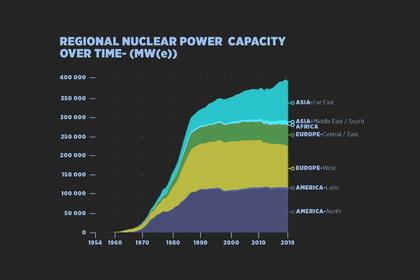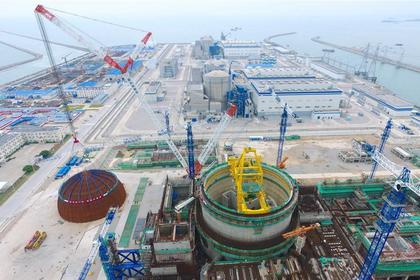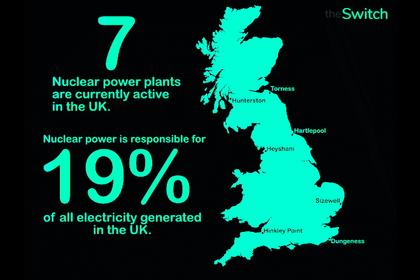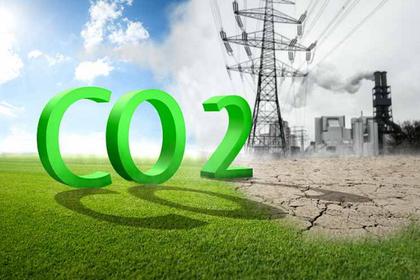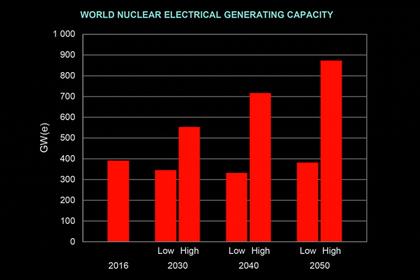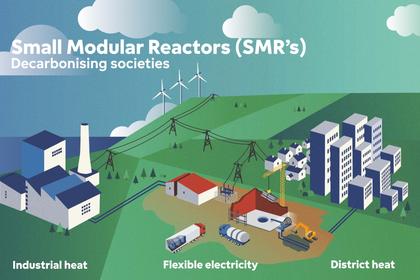
NUCLEAR POWER: TREMENDOUS OPPORTUNITY
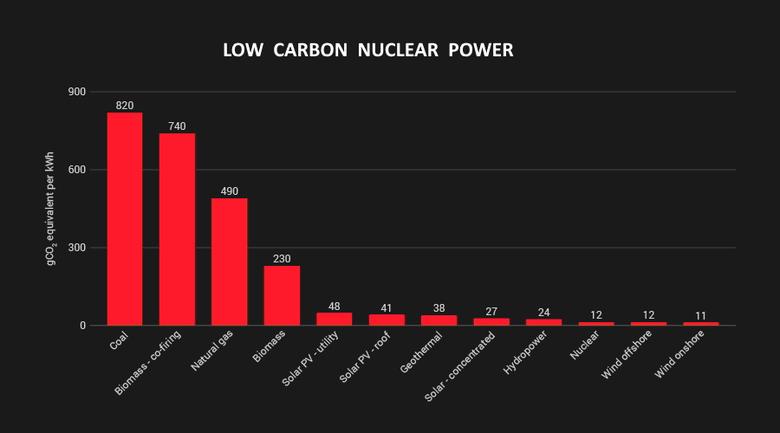
WNN - 10 September 2020 - A high-level panel of senior political figures and experts from leading international energy organisations yesterday discussed how nuclear energy can address some of the most pressing issues the world is facing. The discussion took place during the first session of World Nuclear Association's Strategic eForum 2020.
Opening the event - titled Building a stronger and cleaner tomorrow with nuclear energy - World Nuclear Association Director General Agneta Rising said the world has many challenges to tackle simultaneously: climate change, the post COVID-19 pandemic recovery and supplying ever more electricity around the world.
International Atomic Energy Agency (IAEA) Director General Rafael Grossi, the first panellist, said: "There is something very unique about the circumstances we are all living in now. It has to do with the fact that, for the first time, we are all operating under a global pandemic situation, which means, apart from the obvious evident health considerations that go with it, that we are, together with national financial institutions, looking at the necessary ingredients for economic recovery and how to make it sustainable." The energy component of this recovery, including the use of nuclear power, is crucial, he said. Investment in the long-term operation of existing reactors is also essential, he said.
Laszlo Varro, chief economist at the International Energy Agency (IEA), said the COVID-19 pandemic has presented an "unprecedented economic and social shock" which has impacted energy use and reduced carbon dioxide (CO2) emissions. However, he said this reduction in CO2 emissions "was achieved at an unacceptable social and economic cost, adding that unless governments "rise to the challenge and put cleaner energy at the heart of economic recovery efforts" it is almost certain that CO2 emissions will rebound.
Varro said there is clear value in maintaining a diversified low-carbon technology portfolio, including nuclear power, as well as wind and solar. "We very much see nuclear power as a very useful complement to a power system that has a large share of renewable energy."
Transition to low-carbon energy
Scott Foster, director of the Sustainable Energy Division of the United Nations Economic Commission for Europe, said: "We are going to see another pandemic at some point in the future. We are seeing the forest fires in California. We've seen the rising oceans. So clearly the formula that we are using to address climate change and the formula that we are using to address resilience is the wrong formula." He suggested the pandemic has given the world the opportunity to "make the pivot" to a low-carbon energy system. "We are not going to get to 2 degrees in our energy mix of the future if nuclear power is excluded," he said.
OECD Nuclear Energy Agency Director General William Magwood said an analysis by the OECD shows that CO2 emissions from electricity generation in OECD countries must be reduced by 85% by 2050 in order to meet the COP21 climate goals. "Anyone who knows anything about the electricity system knows that we are talking about an amazing shift in how we do business and, quite frankly, there are many of us that think the world may simply not be up to the challenge."
He said it was the responsibility of governments to find the solution to enable the world to progress to a cleaner energy system whilst allowing economies to expand around the world whilst still protecting the environment.
"That's why I think nuclear has a tremendous opportunity. There is simply not another energy technology before us today that can do the things that nuclear can do. Nuclear can provide very large amounts of carbon-free electricity on a dispatchable basis. Nuclear is a technology that is easily expandable under the right situation, that we understand how to build and operate, and we have the ability to use this technology to match with renewables to enable us to be successful."
Magwood added that if nuclear is not employed in sufficient quantities "then the world is very likely to fail quite miserably in its climate objectives".
Challenges to be faced
IEA analysis "clearly shows" that nuclear power has an important role in making the energy transition "more cost-effective and more energy secure", Varro said, but there are major challenges to be overcome, both by the industry and also by governments.
Grossi said it was important for the nuclear community to "widen the debate and the scope of our ideas". There is a need to highlight the contributions that nuclear energy is currently making and could potentially make in creating a decarbonised economy. "We need to ensure to give guarantees to the international community about the safe, secure and non-proliferation character of our industry," he said.
Magwood noted that, as a result of delays and cost increases in recent nuclear new build projects, the public and many governments consider nuclear energy "as perhaps a technology that is just too hard to build". Issues with many projects have been primarily due to the fact that new plants have not been constructed in some countries for many years, he added. Those countries that have continued constructing plants and that have maintained their expertise, supply chains and regulatory capacities "do quite well", he added.
"For countries that don't have that ability, don't have that history of constant build, many of them are beginning to turn towards new technologies - small modular reactors and advanced reactors - with the idea that these technologies can be built the same way we build airplanes today." Magwood said. "This model is yet to be proven - we haven't done it - but there is a lot of enthusiasm and a lot of hope. A lot of governments think this may actually be the way to the future."
Nuclear newcomer countries
On 8 September, Polish Climate Minister Michał Kurtyka unveiled his plan to construct six new nuclear power units by 2040 as the country transitions to a clean energy economy. Speaking at the Strategic eForum, he said in addition to the environmental benefits of nuclear energy, Poland recognises the social and economic benefits. Kurtyka noted that for every job at a nuclear power plant, two further jobs are created in the surrounding region. "So it's also part of the COVID recovery plan and it should especially be dedicated to regions that will be coping with the consequences of [the economic] slowdown caused by the pandemic."
Similarly, Uzbekistan's Deputy Energy Minister Jurabek Mirzamakhmudov said the country sees nuclear "as a really sustainable power supply" that "contributes to protecting the environment by reducing CO2 emissions and aids the development of other industries".
Uzbekistan and Russia signed an intergovernmental agreement on cooperation in the use of nuclear energy for peaceful purposes in December 2017, and in September 2018 a further agreement was signed for the construction by Russian state nuclear corporation Rosatom of two VVER-1200 reactors. These are to be commissioned in 2028 and 2030, respectively.
"The benefits of building nuclear facilities actually goes well beyond the fact it's carbon-free," said Magwood. "It is an amazing device to spur economic development, technological growth and the education of young people."
-----
Earlier:

